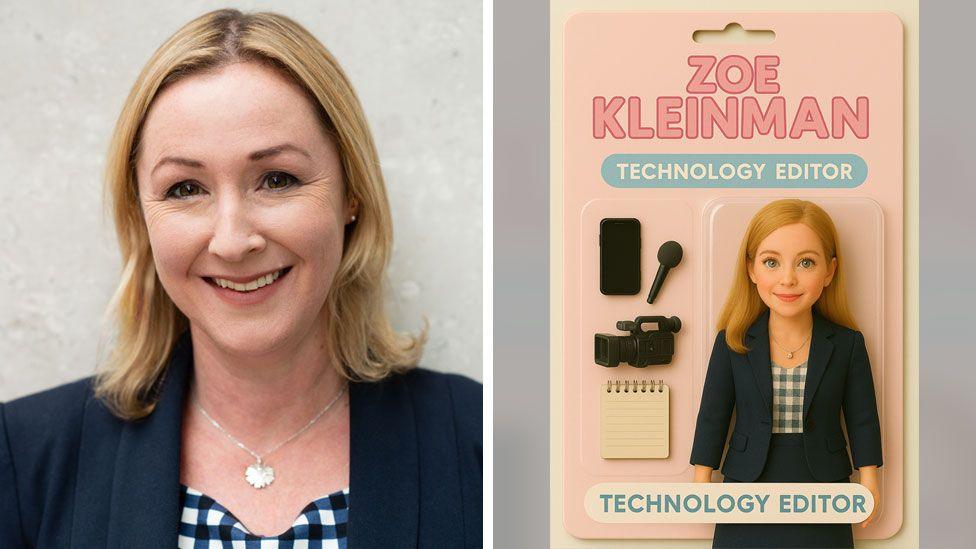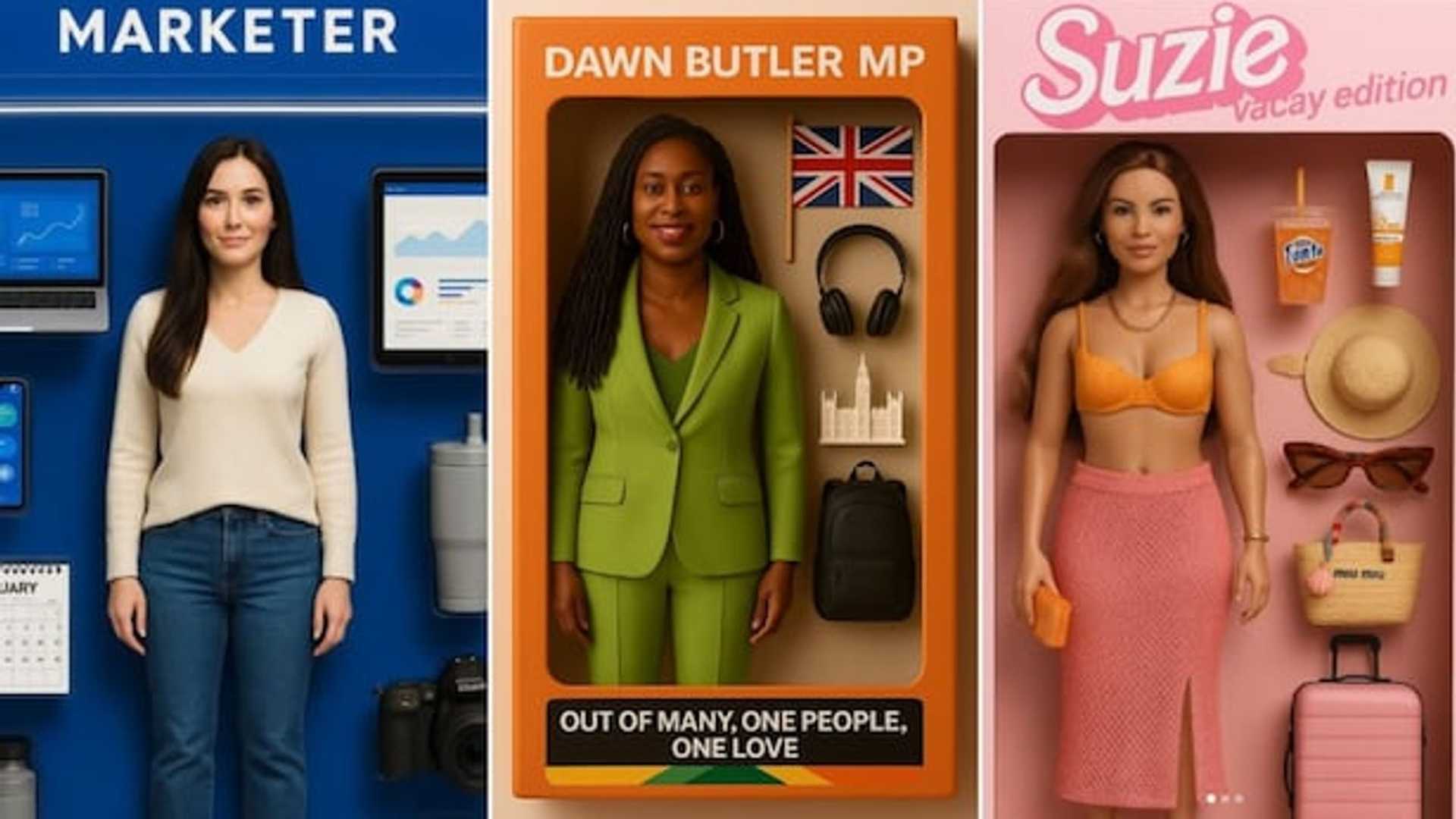Why is everyone suddenly a doll? Newest AI trend is more than ...
If you've scrolled social media much lately, you've probably noticed a lot of dolls. There are dolls all over X and Facebook feeds. Instagram? Dolls. TikTok? You guessed it: dolls, plus tutorials on how to make dolls. There are even dolls all over LinkedIn, arguably the most serious and least fun member of the gang.
The Barbie AI Treatment
You can call it the Barbie AI treatment or the Barbie box trend. Or if Barbie isn't your thing, you can go with AI action figures, action figure starter pack, or the ChatGPT action figures trend. But however you hashtag it, the dolls are seemingly everywhere. And while they have some similarities (boxes and packaging that mimic Mattel's Barbie, personality-driven accessories, a plastic-looking smile), they're all as different as the people posting them, except for one crucial, common feature: They're not real.
In the new trend, people are using generative AI tools like ChatGPT to reimagine themselves as dolls or action figures, complete with accessories. It's proven quite popular, and not just with influencers. Celebrities, politicians and major brands have all jumped in. Journalists reporting on the trend have made versions of themselves holding microphones and cameras (though this journalist won't make you suffer through that). And users have made versions of pretty much any notable figure you can think of, from billionaire Elon Musk to actress and singer Ariana Grande.
Data Privacy Concerns
According to tech media website The Verge, it actually started on professional social networking site LinkedIn, where it was popular with marketers looking for engagement. As a result, many of the dolls you'll see out there seek to promote a business or hustle. But it's since leaked over to other platforms, where everyone, it seems, is having a bit of fun finding out if life in plastic really is fantastic.
However, it isn't necessarily harmless fun, according to several AI experts who spoke to CBC News. Generative AI in general presents significant data privacy challenges. Data privacy issues and the internet aren't new, but AI is so "data-hungry" that it ramps up the scale of the risk. There are concerns over its data use and the potential for bad actors to use data scraped online to target people.

Environmental Impact
CBC's Quirks and Quarks has previously reported on how AI systems are an energy-intensive technology with the potential to consume as much electricity as an entire country. Despite the concerns, however, these kinds of trends are positive for the AI companies trying to grow their user bases. But as with any AI trend, there are some concerns over its data use.
Meanwhile, as the AI-generated dolls take over our social media feeds, concerns are raised by artists concerned about the devaluation of their work, using the hashtag #StarterPackNoAI. Concerns had previously been raised about the last AI trend, where users generated images of themselves in the style of the Tokyo animation studio Studio Ghibli — and launched a debate over whether it was stealing the work of human artists.
:max_bytes(150000):strip_icc():focal(462x327:464x329)/ai-barbie-doll-trend-raquel-041125-90c6c7c19cc641728b976f1ea904427a.jpg)




















